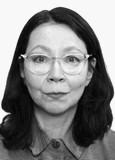Comparative assessment of the strength and endurance of the respiratory muscles in skiers and wrestlers
Ключевые слова:
maximal inspiratory pressure, incremental exercise, respiratory muscle fatigue, wrestlers, skiersАннотация
Objective of the study was to compare the maximal inspiratory strength and endurance of inspiratory muscles in athletes engaged in different types wrestling and skiing.
Methods and structure of the study. The maximal inspiratory pressure (MIP) was measured in athletes of wrestlers and skiers, as well as in volunteers without special physical training before and after incremental cycling exercise "to exhaustion".
Results and conclusion. The highest values of the maximal inspiratory pressure were found in athletes of skiers (155.4±9.9 cm H2O), whose training is aimed at developing the aerobic capabilities. At the same time, the strength of inspiratory muscles decreased both in the control group of subjects (by 12%), and in athletes-skiers (by 8%) and wrestlers (by 11%) after incremental cycling exercise "to exhaustion", which is probably due to the development of inspiratory muscles fatigue. Specific training of the respiratory muscles can be an effective method for the increase in strength and endurance in both wrestlers and skiers, as well as in healthy physically active people.
Библиографические ссылки
American Thoracic Society/European Respiratory Society, ATS/ERS Statement on respiratory muscle testing. American Journal of Respiratory Critical Care and Medicine, 2002. Vol. 166. pp. 518-624.
Babcock, M.A., Pegelow, D.F., Harms, C.A., Dempsey, J.A. Effects of respiratory muscle unloading on exercise-induced diaphragm fatigue. Journal of Applied Physiology, 2002. Vol. 93. pp. 201-206.
Janssens L, Brumagne S, McConnell AK, Raymaekers J, Goossens N, Gayan-Ramirez G, Hermans G., Troosters T. The assessment of inspiratory muscle fatigue in healthy individuals: a systematic review. Respiratory Medicine, 2013. Vol. 107. pp. 331-346
Johnson BD, Aaron EA, Babcock MA, Dempsey J.A. Respiratory muscle fatigue during exercise: implications for performance. Medicine & Science in Sports & Exercise, 1996. Vol. 28. pp. 1129-1137
Johnson BD, Babcock MA, Suman OE, Dempsey JA. Exercise-induced diaphragmatic fatigue in healthy humans. Journal of Physiology, 1993. Vol. 460. pp. 385-405. doi: 10.1113/jphysiol.1993.sp019477
Klusiewicz A. Effects of inspiratory muscle strength on physiological response to exercise in elite rowers and health men. Teoriya i praktika fizicheskoy kultury. 2021. No. 7. pp. 58-60.
Oueslati F, Berriri A, Boone J, Ahmaidi S. Respiratory muscle strength is decreased after maximal incremental exercise in trained runners and cyclists. Respiratory Physiology & Neurobiology, 2018. Vol. 248. pp. 25-30. doi: 10.1016/j.resp.2017.11.005.
Romer L., Dempsey J. Legs play out for the cost of breathing! Physiol News, 2006. Vol.65. pp. 25-27
Romer L.M, Polkey M.I. Exercise-induced respiratory muscle fatigue: implications for performance. Journal of Applied Physiology, 2008. Vol.104. No. 3. pp. 879-888.
Segizbaeva M.O., Aleksandrova N.P. Assessment of the Functional State of Respiratory Muscles: Methodological Aspects and Data Interpretation Muscles. Human Physiology, 2019. Vol. 45. No. 2. pp. 213-224.
Segizbaeva MO, Aleksandrova NP. Respiratory Muscle Strength and Ventilatory Function Outcome: Differences Between Trained Athletes and Healthy Untrained Persons. Advances in Experimental Medicine and Biology, 2021. Vol. 1289. pp. 89-97. doi: 10.1007/5584_2020_554.
Segizbaeva M.O., Donina Zh.A., Timofeev N.N. et al. EMG Analysis of Human Inspiratory Muscle Resistance to Fatigue During Exercise. Advances in Experimental Medicine and Biology, 2013. Vol. 788. pp. 197-205.
Trooster, T., Gosselink R., Decramer M. Respiratory muscle assessment. In R. Gosselink & H.Stam (Eds.), Lung function testing (European respiratory monograph. Vol. 31 p. 57). 2005. Wakefield/Sheffield: European Respiratory Society Journals Ltd.

Дополнительные файлы
Опубликован
Как цитировать
Выпуск
Раздел
Лицензия

Это произведение доступно по лицензии Creative Commons «Attribution» («Атрибуция») 4.0 Всемирная.
